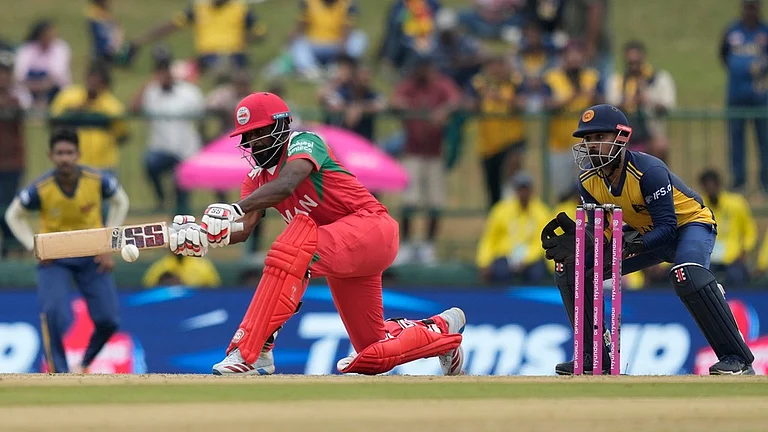Two unmatched firsts –a lawyer with hearing and speech impairment arguing her maiden case in the Supreme Court using a sign language interpreter and the Delhi High Court engaging sign language interpreters when hearing a case filed by four persons with hearing and speech impairment– will be recorded in the annals of legal history as milestones with no parallel. Both these cases point to the efforts to make courts more accessible to persons who are differently abled.
On September 26, when advocate Sarah Sunny argued her case in the Supreme Court before the bench of Chief Justice D Y Chandrachud, she created a historic milestone. Sunny, a person with hearing and speech impairment, translated the proceedings of her case using a sign language interpreter, Saurav Roy Chowdhury. This was her first case as she had not argued any case before. The Supreme Court, through this gesture, has also sent the message of inclusivity of those with such disabilities and that actions too can speak louder than words.
In the same month, the Delhi High Court engaged sign language interpreters while hearing a case pertaining to making audio descriptions, subtitles and captioning in Hindi for the OTT release of the Shahrukh Khan-starrer Pathan more friendly for visually and hearing-impaired persons. The plea, filed by four persons –a law student, two lawyers and a disability rights activist– and argued by advocate Rahul Bajaj, a visually impaired lawyer, sought to make film viewing more enjoyable for the differently abled, particularly the visually and hearing-impaired persons.
Two sign language interpreters stood at the podium –where the judge presides over the proceedings– and translated the happenings through sign language for the hearing-impaired persons who were present in the court. Justice Pratibha Singh, the single judge bench, directed that in all future hearings of this particular case, sign language interpreters will continue to be engaged.
Advocate Sanchita –whose team Sunny is a part of– requested the bench headed by the chief justice to allow her deaf and dumb colleague to argue the case. The case in point was related to the rights of persons with disabilities. After CJI Chandrachud agreed to the request, an online window was opened for Sunny and Chowdhury to connect with each other and argue the case through sign language. Sunny used gestures and the translator put words to them and told the court the arguments presented by Sunny.
At the beginning of the session, the visual courtroom moderator did not allow Chowdhury give share screen space to Sunny for the entire length of the proceedings. However, the chief justice granted permission for Sunny and Chowdhury to be visible on screen, thereby allowing the interpreter to be a participant in the court proceedings without any problem. Sunny is the first hearing and speech-impaired lawyer to appear in a case before the Supreme Court, while advocate Saudamini Pethe was the first deaf lawyer in India who enrolled with the Bar Council of Delhi in December 2022.
In a WhatsApp interview with PTI, Pethe had highlighted the problems she encountered in her journey to become a lawyer and thereafter.
In 2016, the Delhi High Court held that when a witness who is deaf and dumb is cross-examined the court has to consider that the vocabulary of such a person is limited as the person speaks through sign language. The court had then said that the disability of a limited vocabulary of sign language should not affect the credibility of the witness. The 12-year-old deaf and dumb girl was sexually assaulted by the accused who was convicted under the Protection of Children from Sexual Offences Act, 2002 (POCSO). The Court had held that there must be a record of the signs and not the interpretation of the signs.


























